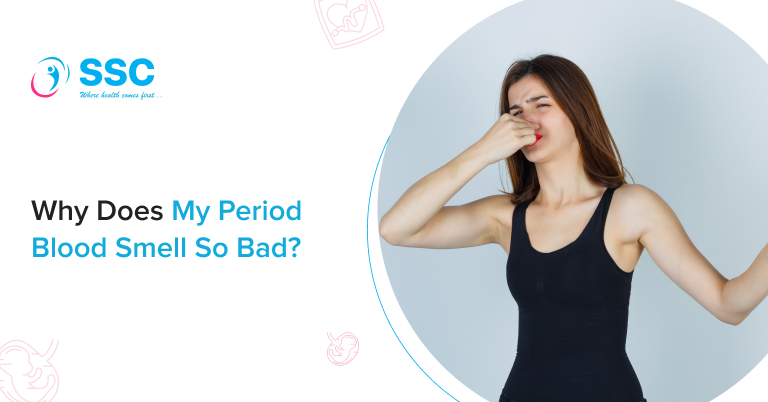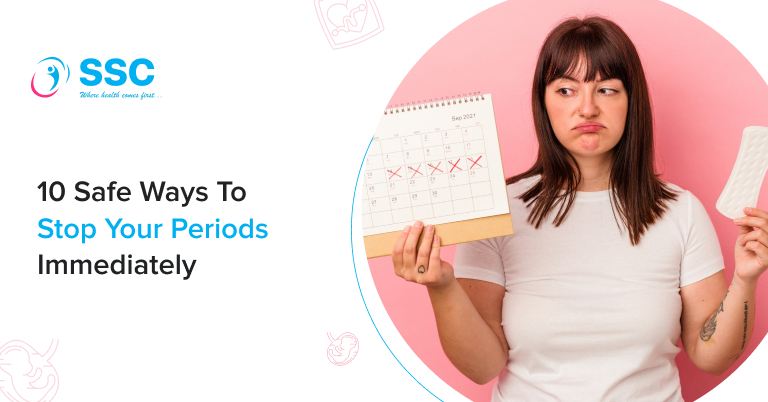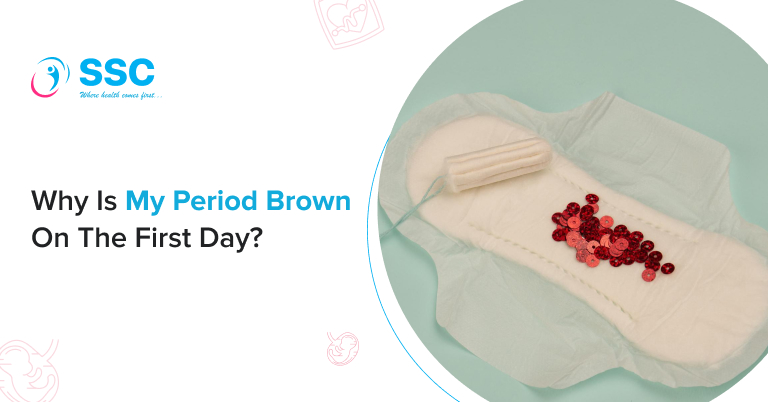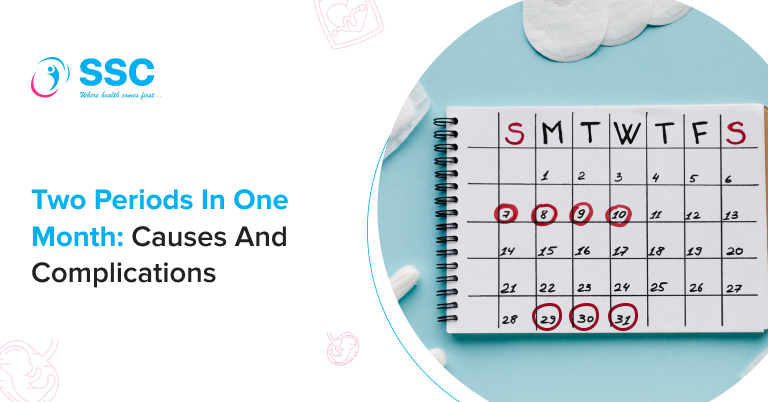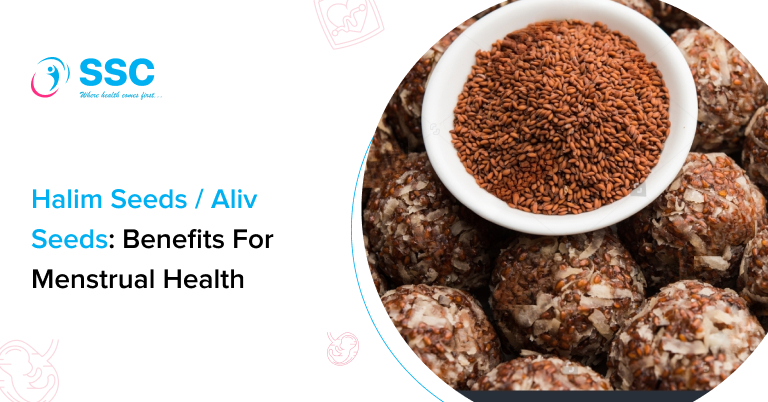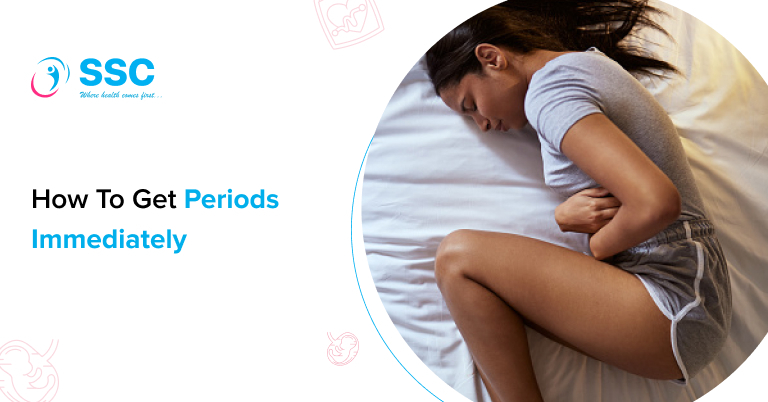Why Does My Period Blood Smell So Bad?
Menstrual blood naturally has a faint smell. But if the smell is strong or different from usual, it might be a sign of an infection, a change in your vaginal bacteria, or because a tampon or napkin was left in too long.
Period blood doesn’t always have a smell, but sometimes it can be a bit unpleasant. To keep things fresh, remember to change your pad or tampon often and keep the area clean.
So, why does this occur? Is it normal? And how can you control or prevent it? In this blog, we’ll look at the causes of monthly odor, the different types of period scents, and how to keep things fresh.
Why Does My Period Smell?
During your period, your body releases the uterine lining, an unfertilized egg, and blood, a natural process that can carry a mild scent once it leaves the body.
This smell usually comes from the vaginal discharge, though the presence of natural bacteria and your body’s pH levels can also affect it.
The odor usually comes from blood, tissue, and bacteria leaving the body. It’s not typically noticeable to others, but changing pads or tampons regularly, especially on heavy days, can help keep things fresh.
Other factors that may contribute to period odor include:
- Leaving a tampon in for too long
- Wearing the same pad for extended hours
- Poor menstrual hygiene
- Heavy flow days, where blood and tissue accumulate for longer.
Common Causes of Menstrual Odor
Bacterial Vaginosis (BV):
A strong fishy smell may indicate BV, a common infection caused by an imbalance in vaginal bacteria.
It often comes with gray or milky discharge, itching, and a burning feeling while urinating. If you experience these symptoms, reach out to your doctor for advice.
Wearing Tampons Too Long:
A rotten or foul odor could mean a tampon has been left in for too long. Tampons should be changed every 4–6 hours to prevent bacterial buildup and unpleasant smells.
Natural Vaginal Bacteria:
Your vagina naturally contains bacteria that mix with menstrual blood. This can produce a mild scent, which is typically normal and varies with hormonal changes and pH balance.
Excessive Sweating:
Hormonal changes during your period can make you sweat more, especially in the genital area.
When sweat mixes with menstrual blood, it may lead to a stronger body odor, similar to post-workout smell. Wearing breathable underwear and maintaining hygiene can help.
Types of Period Smell:
Metallic Smell
It’s normal to notice a slightly metallic smell during your period. It comes from the iron in your blood and usually isn’t a cause for concern.
Rotten Smell
A bad, rotten smell might mean a tampon has been left in too long. If you’re unsure whether you’ve removed it, check for a tampon string or gently feel inside. This smell needs attention, as it can lead to infection.
Sweet Smell
Sometimes, period blood may have a mild sweet scent. This is typically due to natural changes in vaginal bacteria during menstruation and is usually harmless.
Body Odor Smell
Your sweat glands, especially near the vaginal area, become more active during your period.
When sweat mixes with menstrual blood, it can cause a musky or body odor-like smell. Staying clean and wearing breathable underwear can help reduce it.
Fishy Smell
A strong fishy odor is not normal and could be a sign of bacterial vaginosis (BV), a common vaginal infection.
If you also experience itching, burning, or unusual discharge, it’s important to see a doctor.
Can the Others Smell My Period?
No, others usually can’t smell your period. Menstrual odor is usually very mild and only noticeable to you because you’re closest to it.
The scent of period blood mixed with your body’s natural bacteria and discharge is normal and not strong enough to be detected by others.
If someone does notice a smell, it’s often due to a leak or wearing a pad or tampon for too long.
How to Get Rid of Period Smell?
1. Change Your Menstrual Products Frequently
Keeping things clean and fresh starts with timely changes. No matter which product you use, don’t let it sit too long.
- Pads: Change every 4–6 hours, or more often if your flow is heavy.
- Tampons: Change every 4 to 8 hours—never wear one for more than 8 hours.
- Menstrual Cups: Empty and rinse every 8–12 hours.
- Period Underwear: Swap out at least once per day.
2. Wash With Care
Your vagina is self-cleaning, so avoid harsh cleansers.
- Gently wash only the outer area (vulva) using warm water or a mild, pH-balanced cleanser.
- Avoid douching, scented wipes, or deodorizing sprays—these disrupt the natural balance and can cause irritation or infection.
- Always wipe from front to back to avoid risk of infection.
3. Wear Breathable, Clean Underwear
What you wear down there matters.
- Choose cotton or moisture-wicking fabrics to keep your intimate area dry and odor-free.
- Avoid wearing tight synthetic underwear, as it traps heat and moisture.
- Stay hydrated and eat a balanced diet to support your body’s natural cleansing process.
4. Store & Dry Period Underwear Properly
Proper care of reusable products helps prevent odor.
- Wash with pH-balanced soap and rinse thoroughly.
- Dry your underwear and menstrual items thoroughly.
- Ensure they’re completely dry before storing to avoid musty smells.
5. Consider Switching Your Period Products
If traditional pads or tampons aren’t working for you, try:
- Menstrual Cups: Reusable, eco-friendly, and less likely to trap odor.
- Period Diapers: A newer alternative that offers full coverage and high absorbency, ideal for heavy flow days or overnight use. They help contain leaks and reduce the chances of odor.
- Organic Cotton Products: Fragrance-free and gentle on the body.
When to See a Doctor for Periods Smell?
If you notice a strong or unusual smell along with any of the symptoms below, it’s a good idea to consult your gynecologist:
- Itching or irritation around the vaginal area
- Burning sensation while urinating
- Unusual vaginal discharge (color, texture, or amount)
- Pain or discomfort during sex
- Redness or swelling around the vulva
If you’re pregnant and notice any of these signs, it’s especially important to check in with your gynecologist. Most vaginal infections are treatable, but early care helps avoid complications.
Bottom Line:
It’s totally normal to worry if you notice a strong smell during your period — but try not to stress. Most of the time, it’s something simple and easy to fix with good hygiene.
But if the smell doesn’t go away or feels different than usual, it’s a good idea to check in with your doctor.
They’re there to help and can figure out what’s going on, so you can feel fresh, healthy, and confident again.

